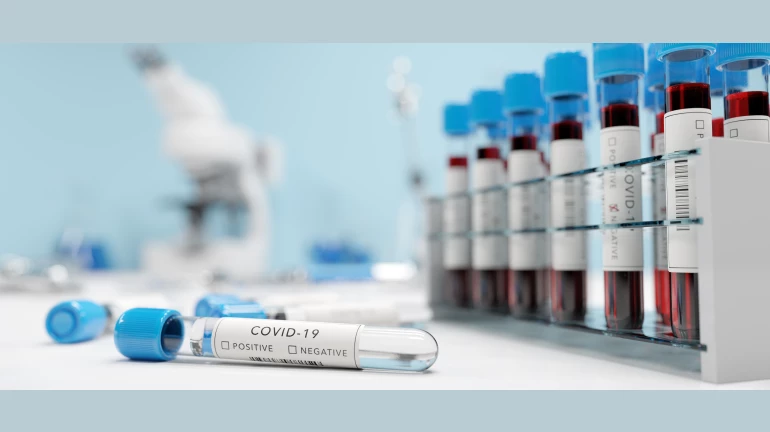
The University of Oxford recently concluded a clinical trial with the experimental monoclonal antibody cocktail REGEN-COV2 (Regeneron). This study has shown great results among severe cases of COVID-19. Given that monoclonal antibody cocktails have been used for treating illnesses like cancer, Ebola, as well as HIV before, their effectiveness has never been in doubt.
However, coronavirus treating antibody cocktails are relatively new and were first tried out last year among mild to moderate coronavirus patients.
Also read - Fortis Hospital Administers The First 'Antibody Cocktail' To A 72-Year-Old COVID-19 Patient
What is a monoclonal antibody cocktail?
Simply put, this is a form of medication that contains COVID-19 fighting antibodies to combat the virus. These are designed to emulate the functioning of our natural immune system. Such cocktails are generated by extracting the required antibodies from human blood and cloning them.
The aforementioned REGEN-COV2 is a cocktail of two monoclonal antibodies (casirivimab and imdevimab) designed to hit the SARS-CoV-2 spike protein. Such monoclonal antibodies stick to portions of the spike protein, which then blocks it from infecting healthy cells.
What does the research say about this treatment?
While many were expectedly pessimistic about this experimental treatment, research has shown that it is very effective in fighting off the virus. Experts have suggested that some monoclonal antibodies also have the ability to work against multiple variants of the coronavirus, and consequently bring down the risk of hospitalization.
However, no treatment is without its limitations. Monoclonal antibody cocktails are not recommended for use among patients with severe symptoms of COVID-19 or patients who require oxygen.
Former HoD at Department of Pulmonology, PGIMER Chandigarh, Padma Shri Dr Digambar Behera said that the key with this treatment is administering it to “the right patients at the right time.”
It’s also worth pointing out that the newly discovered AY.1 mutation, also known as Delta Plus, is seemingly resistant to monoclonal antibodies, as per Dr V.K. Paul, Head of the National Expert Group on Vaccine Administration for COVID-19.
What does the newly published study show?
The study by the University of Oxford found that this particular monoclonal antibody cocktail, when administered among severe COVID-19 patients “who have not mounted a natural antibody response of their own,” reduced the risk of death by a fifth compared to patients who received standard care.
The university said in a release, “Thus, for every 100 such patients treated with the antibody combination, there would be six fewer deaths.” This particular cocktail further brought down the risk of a patient needing a ventilator, while it also reduced the hospitalisation time of patients who were unable to generate antibodies on their own by four days. The study also added that “no such benefits were seen in the overall study population.”
One can surmise from these findings that the monoclonal antibody cocktail would be better suited for patients who haven’t developed COVID fighting antibodies naturally even with prior infection or hospitalization.
Can we get REGEN-COV2 treatment in India?
Yes, this monoclonal antibody cocktail is currently available in the country via Indian pharma giant Cipla which has partnered with Swiss drugmaker Roche. This particular therapy has received the requisite emergency use authorization in May from the Central Drugs Standard Control Organisation (CDSCO).
India has approved this cocktail for patients that do not require oxygen and are deemed as a mild to moderate COVID-19 case who are at risk of progressing to severe illness.
How much does this treatment cost?
This is an area where monoclonal antibody cocktails may not apply to everyone in their current form. The REGEN-COV2 cocktail, supplied by Cipla in India, comes with a maximum retail price of ₹1.20 lakh per pack. One pack consists of two doses, meaning that each dose has a price tag of around ₹59,750.
What other options are available in India?
The Eli Lilly antibody cocktail which combines bamlanivimab and etesevimab has also received emergency use approval in India and is expected to be available over the coming weeks.
Further, Sotrivimab produced by GlaxoSmithKline received the U.S. FDA Emergency Use Approval late last month, and the company is reportedly looking to bring the therapy to India soon.
Meanwhile, India’s Zydus Cadila said that its antibody cocktail ZRC-3308 will soon go through the trial phase in the country.
Read - India Records 20 Delta Plus Variant Cases, 8 In Maharashtra





